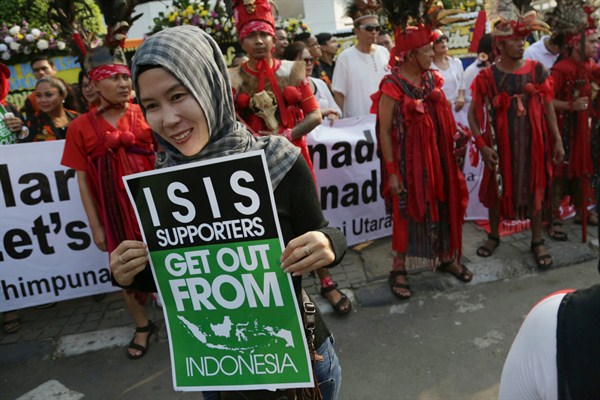Attacks earlier this month in Jakarta by Indonesia’s Islamic State affiliate and a claim of allegiance to the jihadi group from a militant collective in the Philippines seem to show the Islamic State’s ascendency in yet another region outside its core operating base in Syria and Iraq. Confounding efforts to contain its global expansion, the Islamic State appears to have an increasing number of territories, or wilayat, and organizations nominally under its authority, amid an uptick in attacks against Western interests carried out at its behest.
On this basis, it’s tempting to conclude that the Islamic State’s reach and successful franchising and incitement strategies mark a dangerous new era, shaped in particular by the resonance of its ideology. But politics is ultimately local, and terrorism as a form of violent political activity is no different—regardless of its window-dressing. The ascendance of the Islamic State along with the resilience of al-Qaida—the organization to which it previously aligned and from which it subsequently split—have as much to do with local factors driving individual and group dynamics as they do with ideological appeal.
Ideology is important when assessing a terror threat environment. But more often than not a quest for benefits and empowerment—real or perceived—ultimately drives group relationships, as well as the trajectories for attacks and even the motivations of individual actors, as the history of militant Salafism shows. Therefore, how much of what has recently taken place from Jakarta to Paris is actually driven by ideology, as opposed to disguised by it?

